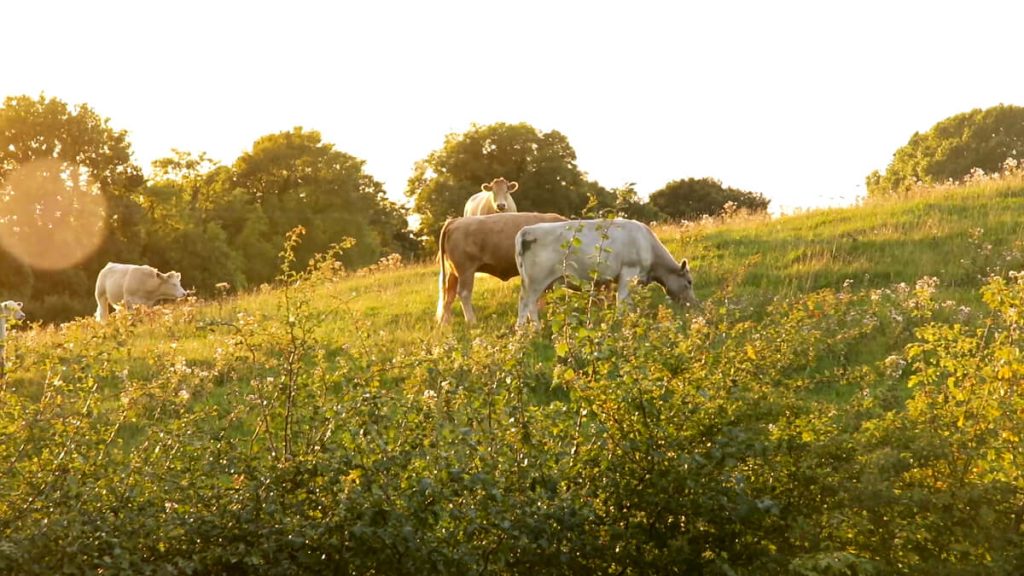Tags
‘Very unlikely’ EU will reach 2030 organic farming target

It is “very unlikely” that the EU will reach its target of expanding the share of organic farming to at least 25% of EU agricultural land by 2030, according to a new report.
The share of EU agricultural land that is farmed organically has been continuously increasing since 2012 and currently stands at 9.9% or 16 million ha.
The European Environment Agency (EEA) said that current policies and public support will most likely increase the share of organics, but not sufficiently to meet the target.
The current policy measures and short and medium-term decrease in demand for organics, due to unfavourable economic conditions, point to a share below 25% in 2030, the EEA said.
The growth rate is projected to lead to a 15% organic farming area share in 2031, with the assumption of a growing demand and continuing policy support, the EEA said.
Organic farming
The EEA defined organic farming as the production of food using natural substances and processes which has benefits for biodiversity, soil health and water quality.
Organic farming avoids or “markedly reduces” the use of synthetic chemicals, applies high animal welfare standards and excludes the use of genetically modified organisms (GMOs).
Ireland is among the six EU countries with a share of organic farming under 5% of utilised agricultural area (UAA) followed by Bulgaria and Malta, Eurostat figures show.
In 2021, Austria, Estonia and Sweden had a share of over 20% of organic farming. Poland was the only member state in which the share of organics fell between 2012 and 2021.

The conversion process to organic farming typically takes two to three years, depending on the crop before the farm is certified as organic, the EEA report states.
The “total organic area” includes bot the certified organic farming area and the area under conversion to organic farming, according to the EU definition.
Report
The EEA’s report monitors progress towards the objectives of the 8th Environment Action Programme (EAP), and is the first of the series to be published annually until 2030.
The EU may not reach the majority of the targets by 2030, particularly objectives of reducing environmental and climate pressures related to production and consumption.
This includes targets on energy consumption, rate of circular material use, and the share of area under organic farming, which all look very unlikely to be achieved by 2030.
Further 8th Environment Action Programme monitoring results by the EEA include:
- Reducing net greenhouse gas (GHG) emissions by at least 55% by 2030 from 1990 levels is likely but uncertain;
- Decreasing the area impacted by drought and loss of vegetation productivity is unlikely but uncertain;
- Significantly reducing the total amount of waste generated by 2030 is unlikely but uncertain;
- Reducing premature deaths from air pollution by 55%, from 2005 levels, by 2030 is very likely;
- Reducing nutrient losses by at least 50% in safe groundwater resources is unlikely but uncertain;
- Legally protecting at least 30% of the EU’s land area by 2030 is unlikely but uncertain;
- Reversing the decline in populations of common birds is unlikely but uncertain;
- At least 42.5% of energy from renewable sources in gross final energy consumption by 2030 is unlikely but uncertain;
- Double the ratio of circular material use by 2030 compared to 2020 is very unlikely;
- Reducing environmentally harmful subsidies, in particular fossil fuel subsidies, with a view to phasing them out without delay is unlikely but uncertain.
“Our analysis show that member states need to urgently strengthen actions to meet Europe’s environment and climate ambitions by 2030,” EEA executive director, Leena Ylä-Mononen said.
https://www.agriland.ie/farming-news/very-unlikely-eu-will-reach-2030-organic-farming-target/Published Date: December 25, 2023






